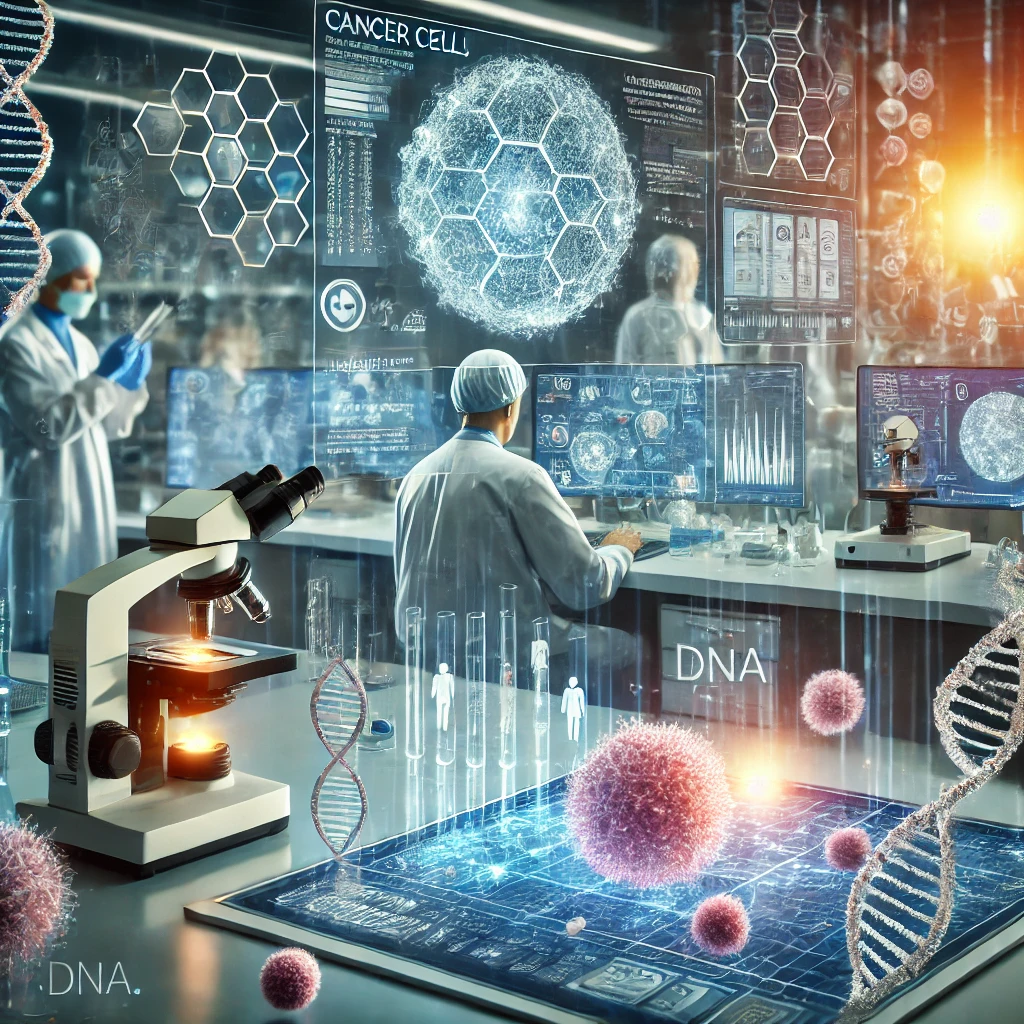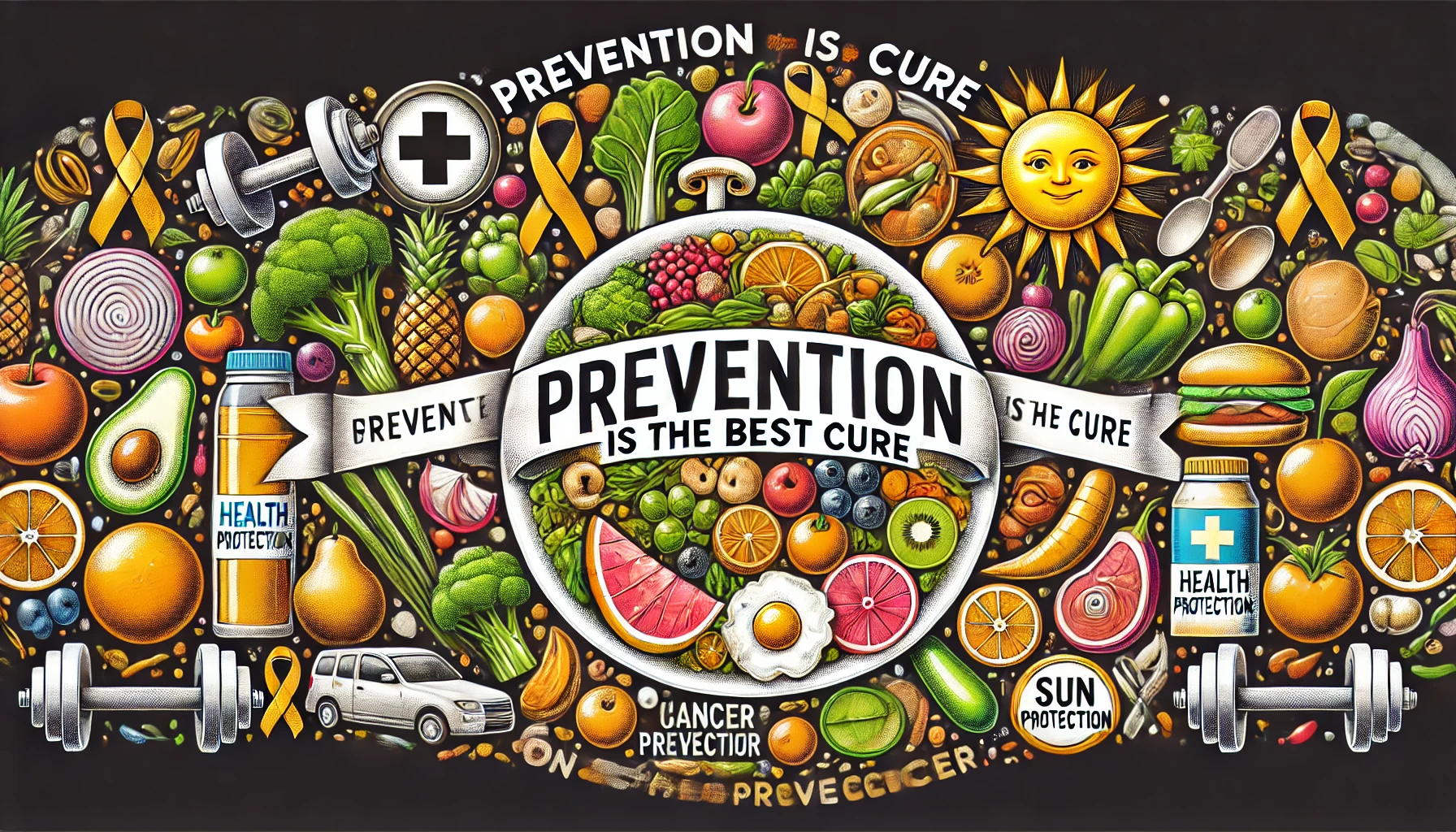
Innovations in Cancer Research: Exploring the ..
Nov 19 - 2024

By Dr. Julie Pratibha Singh, Scientific Advisor, Health29
Introduction
In today's fast-paced world, where convenience often trumps health, it's easy to forget that our everyday choices significantly impact our well-being. While genetics and environmental factors play a role in cancer development, research consistently shows that diet and lifestyle choices can dramatically reduce the risk of many cancers. At Health29, we are committed to empowering individuals with knowledge and tools to make healthier choices. In this blog, we explore practical steps you can take to lower your cancer risk through diet and lifestyle modifications.
1. Balanced Diet: Your First Line of Defense - A nutritious, balanced diet is crucial in preventing cancer. A diet rich in fruits, vegetables, whole grains, and lean proteins provides essential nutrients and antioxidants that protect cells from damage. Here’s how you can optimize your diet:
· Increase Plant-Based Foods: Incorporating a variety of colorful fruits and vegetables into your meals is one of the most effective ways to reduce cancer risk. These foods are packed with antioxidants, vitamins, and minerals that help neutralize harmful free radicals and support your immune system.
· Choose Whole Grains: Whole grains like brown rice, oats, and quinoa are excellent sources of fiber, which has been linked to a lower risk of colorectal cancer. Fiber helps maintain a healthy digestive system and promotes regular bowel movements, reducing the likelihood of carcinogen buildup.
· Incorporate Antioxidant-Rich Seeds: Chia seeds, flax seeds, and pumpkin seeds are not only rich in fiber but also loaded with antioxidants and healthy fats. These seeds can help reduce inflammation, a key factor in cancer development, and protect your cells from oxidative stress. Including a handful of these seeds in your daily diet can be a simple yet powerful step in cancer prevention.
· Limit Processed Foods: Processed and red meats have been linked to an increased risk of colorectal and stomach cancers. Reducing your intake of processed foods and opting for lean proteins like chicken, fish, or plant-based alternatives can make a significant difference.
Dt. Kamini Sinha, a leading dietician at Manas Hospital emphasized, “A well-balanced diet rich in fruits, vegetables, whole grains and antioxidants is one of the most powerful tools we have against cancer.”
2. Healthy Weight Management: Maintaining a healthy weight is another critical factor in cancer prevention. Obesity is associated with increased risks of various cancers, including breast, colon, and endometrial cancer. Here’s what you can do:
· Regular Physical Activity: Aim for at least 150 minutes of moderate exercise or 75 minutes of vigorous exercise per week. Activities like walking, cycling, swimming, or yoga can help maintain a healthy weight and reduce cancer risk
· Mindful Eating: Practice mindful eating by paying attention to hunger cues and avoiding overeating. Choose portion-controlled meals and snacks that are high in nutrients but low in calories.
· Avoid Sugary Drinks and Excessive Alcohol: Sugary drinks contribute to weight gain, while excessive alcohol consumption is linked to various cancers, including liver, mouth, and breast cancer. Opt for water, herbal teas, and other non-sugary beverages.
3. Avoid Tobacco and Limit Alcohol: Tobacco use is the leading cause of preventable cancer, responsible for approximately 22% of cancer deaths. Quitting smoking or never starting is one of the most effective ways to reduce cancer risk. Similarly, limiting alcohol intake is crucial, as alcohol is a known carcinogen. If you choose to drink, do so in moderation—up to one drink per day for women and two for men.
Dr. Ritesh Sharma (Senior Consultant, Radiation Oncology, Batra Cancer Centre, Delhi) a specialist in preventive medicine, shared, “Avoiding tobacco and limiting alcohol are among the most important lifestyle changes one can make to reduce the risk of cancer. These substances are significant contributors to cancer risk and cutting them out can have a profound impact on your overall health.”
4. Sun Protection: Skin cancer is one of the most common types of cancer, but it is also one of the most preventable. Protect your skin by:
· Using Sunscreen: Apply a broad-spectrum sunscreen with at least SPF 30 every day, even on cloudy days.
· Wearing Protective Clothing: Long sleeves, wide-brimmed hats, and sunglasses can shield your skin from harmful UV rays.
· Avoiding Tanning Beds: Tanning beds increase the risk of skin cancer. Opt for self-tanning products if you desire a tanned appearance.
5. Regular Screening and Vaccinations: Early detection can significantly improve cancer outcomes. Regular screenings like mammograms, colonoscopies, and Pap tests can detect cancers in their early stages when they are most treatable. Additionally, vaccinations like the HPV vaccine can prevent cancers caused by certain infections.
6. Stress Management and Mental Well-Being: Chronic stress and poor mental health can weaken the immune system and increase the risk of cancer. Incorporating stress-relief practices into your daily routine can help maintain your overall health:
· Mindfulness and Meditation: These practices can reduce stress and improve mental clarity.
· Regular Sleep: Aim for 7-8 hours of quality sleep each night to allow your body to repair and rejuvenate.
· Social Support: Maintain strong connections with family, friends, and support groups to help manage stress and stay motivated in your cancer prevention journey.
At Health29, we believe that prevention is the best cure. By making small but significant changes in your diet and lifestyle, you can reduce your cancer risk and lead a healthier, more vibrant life. Our team of experts is here to guide you every step of the way, whether you need personalized dietary advice, want to understand your cancer risk, or require support in making lifestyle changes. Together, we can build a future where cancer is less prevalent and more manageable.
For more information on how Health29 can support you in your cancer prevention journey, reach out to us today.
Acknowledgment
We would like to thank Dt. Kamini Sinha, Dietician, Manas Hospital, Noida and Dr. Ritesh Sharma Senior Consultant, Radiation Oncology, Batra Cancer Centre, Delhi for sharing their valuable insights on cancer prevention. Their expertise continues to guide our efforts in promoting a healthier future.
Email us support@health29.in,
Copyright © 2022-24 Health29. All Rights Reserved. Design & Developed By : Innovative Solution Technologies | ISOLS Group